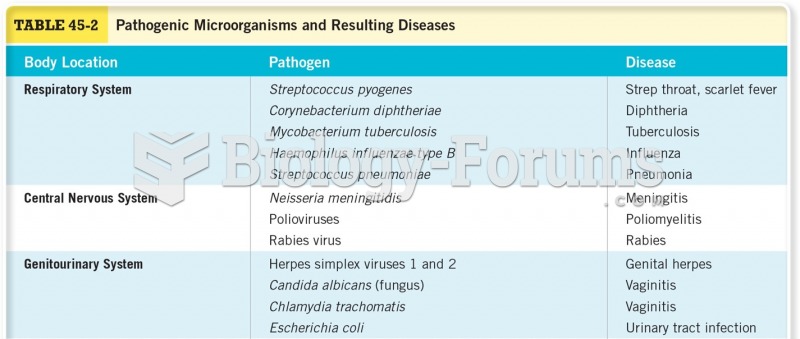|
|
|
Medication errors are three times higher among children and infants than with adults.
The Food and Drug Administration has approved Risperdal, an adult antipsychotic drug, for the symptomatic treatment of irritability in children and adolescents with autism. The approval is the first for the use of a drug to treat behaviors associated with autism in children. These behaviors are included under the general heading of irritability and include aggression, deliberate self-injury, and temper tantrums.
The heart is located in the center of the chest, with part of it tipped slightly so that it taps against the left side of the chest.
Thyroid conditions cause a higher risk of fibromyalgia and chronic fatigue syndrome.
The types of cancer that alpha interferons are used to treat include hairy cell leukemia, melanoma, follicular non-Hodgkin's lymphoma, and AIDS-related Kaposi's sarcoma.







